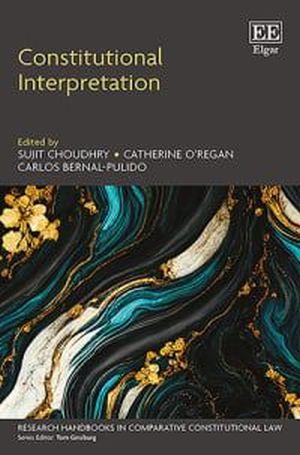
This insightful Handbook argues that constitutional interpretation has two core elements: constitutional text and constitutional context. Through a combination of thematic chapters and country-specific case studies, the Handbook analyses commitments found in preambles, epilogues, and other constitutional elements, as well as the overall constitutional structure.
Constitutional Interpretation features contributions from a global team of experts, who discuss mission-driven constitutions through topics such as plurinationalism, transitional contexts, social transformation, post-authoritarianism, and defensive anti-authoritarianism. A variety of global case studies to support claims about the phenomenology of constitutional interpretation that are not tied to any specific country, while acknowledging that constitutional interpretation varies significantly across legal and political contexts.
This comprehensive Handbook is a valuable resource for students and scholars of comparative and constitutional law. Its broad scope will also appeal to those seeking a new perspective on regional human rights law.